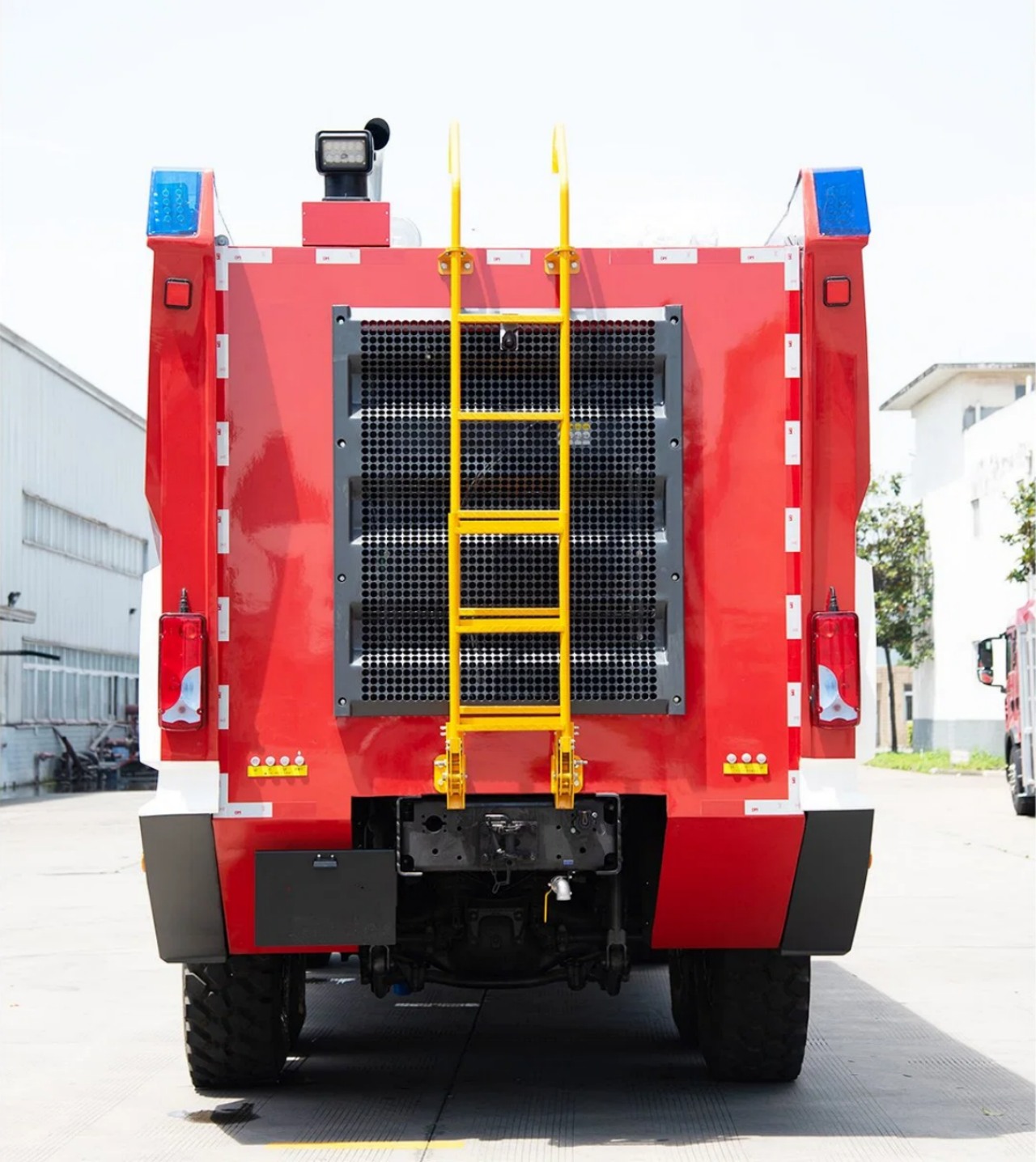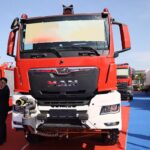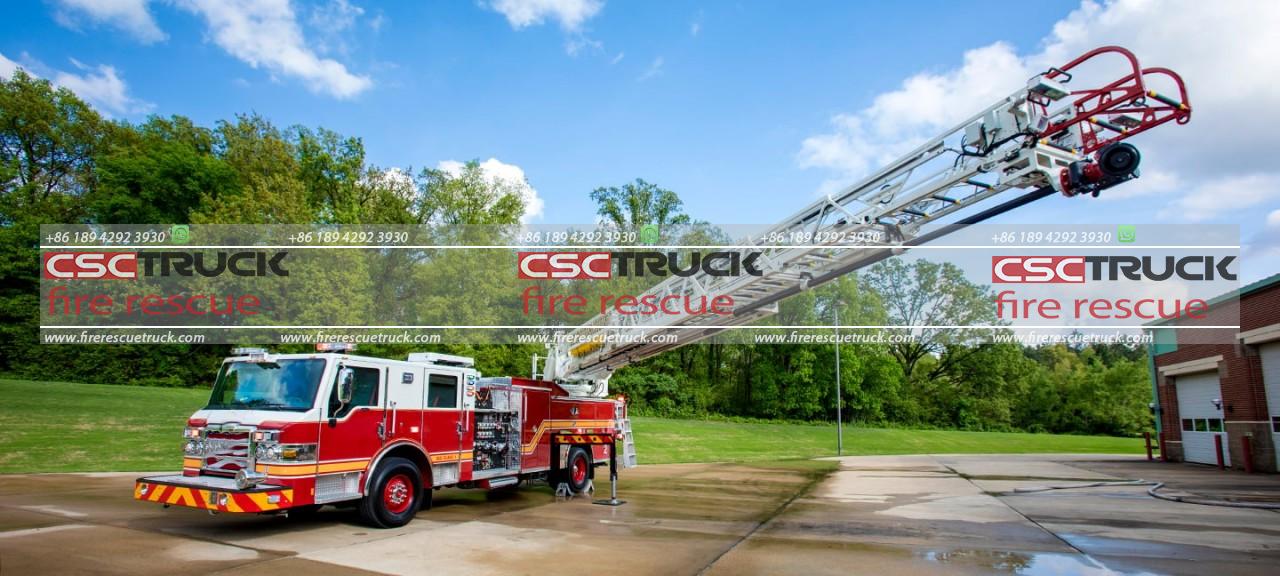Airport Rescue Fire Fighting Truck: Airport Firefighting Trucks and Their Vital Role
Airport Rescue Fire Fighting Trucks (ARFF trucks) are specialized vehicles designed to respond to emergencies at airports. These firefighting units are integral to ensuring the safety of passengers, crew members, and airport personnel by providing quick and efficient responses to fires, hazardous material spills, accidents, and other emergencies. As airports handle vast numbers of passengers, cargo, and aircraft daily, having a dedicated firefighting force capable of managing aviation-related emergencies is crucial. ARFF trucks are built to meet the unique challenges posed by aviation accidents, from airplane crashes to runway fires, requiring specialized equipment and highly trained personnel.
The Purpose of ARFF Trucks
The primary purpose of Airport Rescue Fire Fighting Trucks is to protect airport infrastructure and ensure the safety of passengers and crew during emergencies. They are designed to operate effectively in the unique environments found at airports, where aircraft fires, hazardous material spills, and other critical incidents may occur. Unlike standard fire trucks, ARFF trucks are specifically engineered for rapid response, extreme mobility, and the capability to tackle fires involving jet fuel, toxic materials, and large aircraft.
When a fire breaks out in an airport setting, it poses unique challenges. Aviation fires often involve large amounts of fuel, as well as hazardous materials, which require special training, equipment, and tactics to manage. ARFF trucks, with their powerful firefighting capabilities, advanced technology, and highly trained personnel, play an essential role in mitigating these dangers and protecting lives and property.
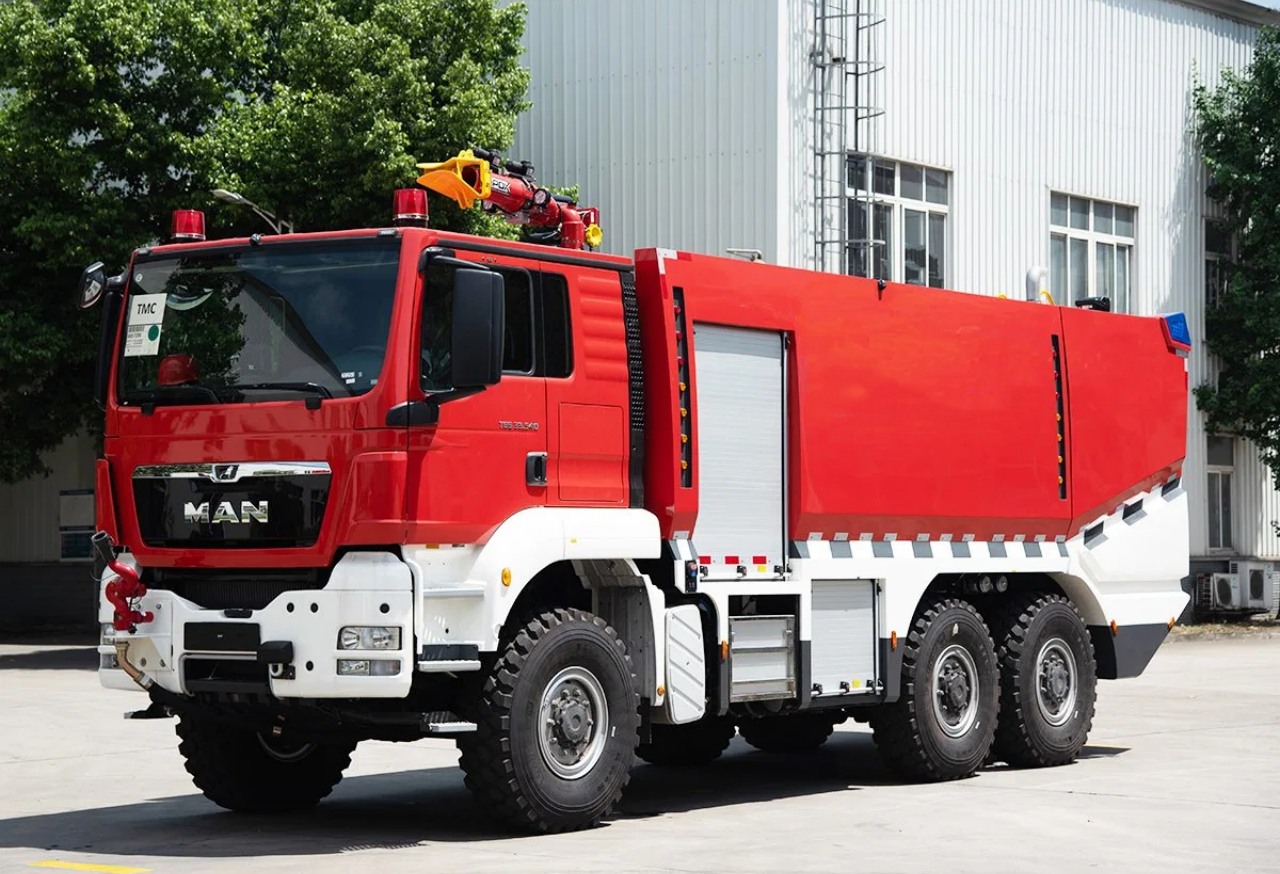
Key Features of Airport Rescue Fire-Fighting Trucks
ARFF trucks are built with a range of features that differentiate them from regular firefighting vehicles. The key features of these vehicles make them suitable for the high-intensity demands of airport firefighting operations:
- High-Flow Water and Foam Systems: ARFF trucks are equipped with powerful water pumps and large-capacity foam systems capable of delivering high volumes of water and foam at high pressures. The foam is essential for extinguishing aviation fires, as it helps to smother burning fuel and prevent re-ignition.
- Foam Agents: ARFF trucks typically carry specialized fire suppression foam agents that are effective in dealing with the flammable and hazardous materials commonly found in aviation accidents. These foam agents can quickly suppress large fires and prevent the spread of flames across an aircraft or surrounding areas.
- Large Capacity: ARFF trucks are designed to carry large quantities of water, foam concentrate, and dry chemical agents. This capacity is crucial, especially during major incidents, where firefighting crews may need to sustain a firefighting operation for an extended period. A typical ARFF truck may carry between 1,500 and 4,500 gallons of water, along with several hundred gallons of foam concentrate.
- High Mobility: ARFF trucks are engineered for rapid deployment and high mobility. They feature robust all-terrain tires, a high ground clearance, and powerful engines that allow them to quickly navigate across runways, taxiways, and other challenging terrain within the airport perimeter. Their speed is essential for reaching an accident site as quickly as possible, given the time-sensitive nature of airport emergencies.
- High-Performance Pumps: The pumps on ARFF trucks are designed to deliver high volumes of water and foam under pressure. These pumps are capable of quickly covering large areas, such as aircraft fuselages or fuel tanks, and are essential in battling large-scale fires.
- Advanced Nozzle Systems: ARFF trucks are equipped with specialized nozzles and firefighting systems, such as turret-mounted monitors, that can direct powerful streams of water and foam onto burning aircraft or structures. The turret systems can be operated remotely by the driver or crew members, allowing them to focus on precision fire suppression while keeping a safe distance from the flames.
- Rescue and Medical Equipment: In addition to firefighting capabilities, ARFF trucks are also equipped with tools and equipment for rescue operations. These include hydraulic extrication tools (often referred to as “Jaws of Life“), stretchers, and first-aid kits. This allows ARFF crews to assist in the evacuation of passengers and provide immediate medical support if needed.
- Crew Safety Features: Given the hazardous environment that ARFF trucks operate in, these vehicles are built with numerous safety features for their crew members. These include reinforced cabins, advanced communications systems, thermal imaging cameras, and protective firefighting gear such as flame-resistant suits, gloves, and helmets.
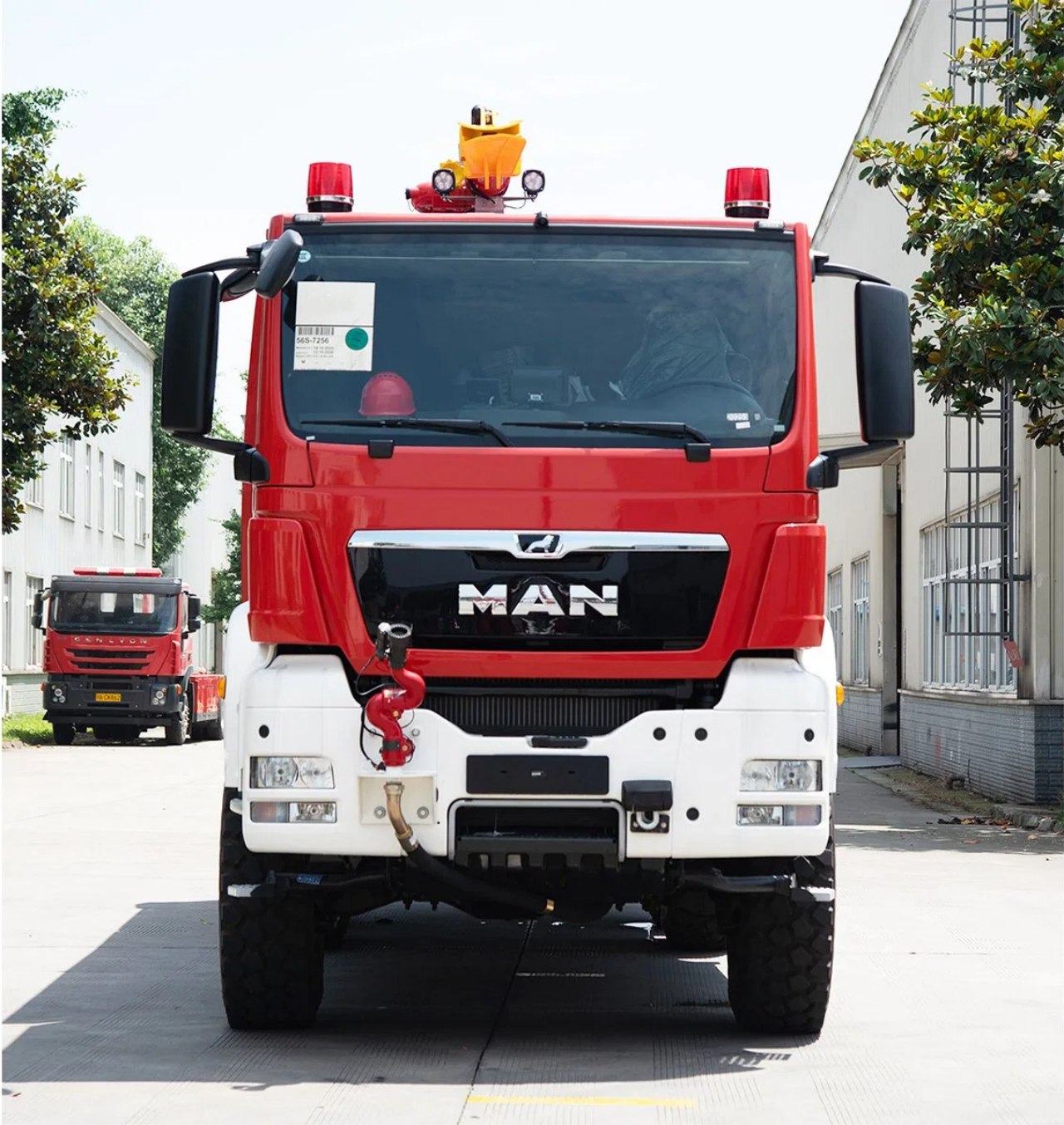
The Role of ARFF Trucks in Airport Safety
ARFF trucks play a crucial role in ensuring airport safety by providing an immediate response to fires and other emergencies. Their presence on airport grounds is mandatory as per the regulations of the International Civil Aviation Organization (ICAO), which sets the standards for emergency response services at airports. Airports must have an adequate number of ARFF trucks and firefighting personnel to meet the needs of the airport, based on factors such as airport size, aircraft traffic volume, and the level of risk associated with aviation operations at that location.
The primary roles of ARFF trucks in airport operations include:
- Crash Response: When an aircraft crashes, ARFF trucks are dispatched to the scene to quickly suppress fires and protect survivors. Aircraft crashes often involve large quantities of flammable materials, including jet fuel, which requires a rapid and efficient firefighting response to prevent fire spread and protect lives.
- Firefighting in Aircraft Accidents: Aircraft fires, especially those involving commercial jets, can be catastrophic. ARFF trucks are equipped to handle these specific types of fires, which involve not only fuel but also hazardous materials found in aircraft, such as lithium batteries, chemicals, and pressurized oxygen cylinders.
- Hazardous Material Response: Airports also need to be prepared for chemical spills, including hazardous material leaks from aircraft cargo or ground equipment. ARFF trucks carry specialized foam and other agents to contain and neutralize such spills, protecting both the environment and public safety.
- Airport Fire Prevention: While their primary role is firefighting, ARFF crews also play a part in preventing fires from occurring in the first place. They routinely inspect airport infrastructure, including fuel systems, hangars, and maintenance areas, to identify potential fire hazards and ensure safety protocols are followed.
- Training and Preparedness: ARFF crews undergo extensive training to handle a variety of emergencies, including live-fire training, hazardous material handling, aircraft rescue operations, and medical evacuation procedures. This training ensures that they can respond effectively to incidents and minimize casualties.
The Importance of ARFF Trucks in Airport Operations
ARFF trucks are an essential part of airport operations, ensuring that the risks associated with aviation are mitigated as much as possible. Their presence and effectiveness are crucial in managing aviation-related emergencies that could otherwise lead to significant damage, loss of life, and long-term environmental impacts. The specialized capabilities of ARFF trucks and their highly trained personnel provide a critical safeguard for both the traveling public and airport staff.
With advancements in technology, airport firefighting capabilities continue to improve. New ARFF trucks incorporate state-of-the-art fire suppression systems, improved mobility features, and advanced safety protocols, further enhancing their effectiveness in responding to airport emergencies.
In conclusion, Airport Rescue Fire Fighting Trucks are indispensable assets to modern airports. Their role in ensuring the safety of passengers, aircraft, and airport infrastructure cannot be overstated. As air traffic continues to grow globally, the importance of ARFF trucks and the personnel who operate them will only continue to increase.
